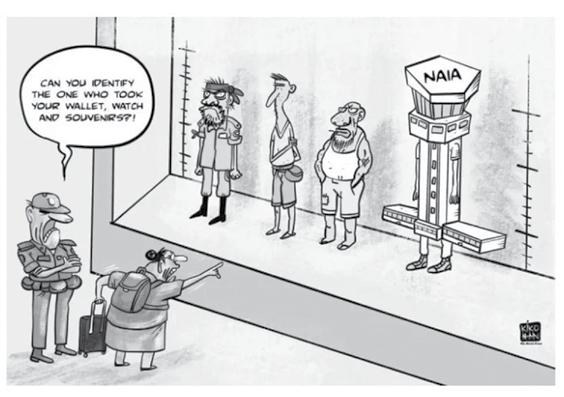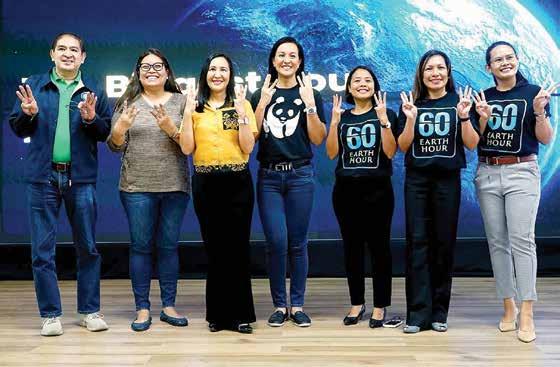
12 minute read
Economic wars between America and China
liberal and political order.
XI Jinping very recently publicly complained that the United States is holding back China’s economy. He is obviously referring to Americanled alliances that have virtually imposed sanctions on countries and companies not to export American technology to China. Major examples of this are banning the use of 5G technology by American companies and the use of the popular TikTok by government institutions in the United States.
Advertisement
Generally, the European Union countries and the socalled Quad – which refers to the four-country alliance of Japan, India, Australia and South Korea that was set up to be a check on Chinese expansion – are following the American lead. These governments – Quad and EU – are not only allies but also prominent market democracies and stakeholders in the world
Recently, the Quad and the European countries have tried to expand their alliance. In June last year, the United States announced the Mineral Security Partnership, an alliance composed of the United States, Australia, Canada, Finland, France, Japan, Norway, South Korea, Sweden, United Kingdom and the European Union to safeguard the supply of copper, lithium, cobalt, nickel and rare earth minerals. China is the leading producer of rare earth minerals. There are also ongoing talks between Japan, South Korea, Taiwan and the United States to create an alliance called Chip 4 that would consolidate the supply chain for semiconductors. There is presently a looming global shortage for these semiconductor chips. Economic sanctions have been used by the United States and its allies to put pressure on countries that have different political agendas. A current example is the sanction imposed on Russia after it invaded Ukraine. China has also used economic coercion to achieve political objectives and to punish countries that appear to have differences with Chinese political ambitions. This has proven to be also effective because China has the second largest economy in the world and has a huge market of 1.4 billion people.
Although there has been a lot of talk about countries decoupling from Chinese manufacturers to lessen dependence on Chinese supply chain, this has not been successful. Beijing’s long-term objective in the use of economic coercion is to force governments and companies to respect and defer to Chinese interests in all their present and future actions.
This methodology seems to be partly working. For example, major democracies such as South Korea remain silent when China passed a National Security Law in Hong Kong suppressing democracy in 2020. In 2021, Brazil did not exclude the Chinese telecommunications giant Huawei from its 5G auction for fear of losing billions of dollars in business.
In 2010, after the Norwegian
Marcoses: Sibling rivalry?
THE great political scientist Alfred W. McCoy once described Philippine politics, in an awardwinning edited volume, as an “anarchy of families.” When it comes to politics, ours is a nation dominated by a few families like no other. The numbers speak for themselves. Authoritative studies have shown that up to 178 political dynasties have largely dominated 73 out of 81 provinces across the country. A decade ago, political dynasties dominated 75 percent of the legislature, a troublingly oligarchic trend that intensified over the succeeding years even under the reformist Aquino administration.
In fact, the Philippines does worse than comparable nations, namely Thailand (42 percent) as well as those in Latin America, the world’s most unequal region:
In Mexico, which used to be the de facto ruler of the Philippines during the Galleon Trade era, political dynasties, at their peak, controlled 40 percent of the legislature, while in Argentina, which has lived under the shadow of Juan Perón and the Kirchner family, the number is 10 percent.
In short, the Philippines is in a league of its own when it comes to oligarchic politics, so much so that one wonders if this country were ever a democracy at all. With our superlatively oligarchic politics comes also an element of anarchy, most dramatically in the shape of family feuds. Lest we forget, Sara Duterte, the current vice president, was a top contender for the highest office until the third quarter of 2021. Absent clear and consistent support from the incumbent back then, however, she wasn’t able to mobilize the necessary machinery.
“I was left with two letters endorsed to me by the president for consideration—one note explained why I should endorse the Go-Duterte tandem and the other suggested that I take in Senator Go as my vice president,” complained Sara in a statement in late August. “I respectfully advise them to stop talking about me and make me the reason for them running or not running,” she added, stating there was a meeting regarding the matter that was “not a pleasant event.”
A year later, media outlets have been speculating about another potential “family feud.”
We have seen some divergent positioning by President Marcos Jr. and his sister, Sen. Maria
Imelda “Imee” Marcos. But much of it is overblown. When it comes to the ratification of the Regional Comprehensive Economic Partnership agreement, for instance, the two siblings actually shared broadly similar apprehensions. This is the reason why the Philippines was the last party, aside from post-coup Myanmar, to ratify the megatrade deal, precisely because the president, just like his sister, had serious reservations about the impact of further trade liberalization on vulnerable sectors, most especially farmers.

Moreover, way before Mr. Marcos extended an olive branch and called for “unity” and “reconciliation” during the Edsa people power commemoration, it was Imee who provided a semblance of “apology” for her father’s authoritarian regime. “I said on many, many occasions that for those who were inadvertently pained, certainly, we apologize,” she said in a forum back in 2018, though refusing to offer a full apology.
On many other occasions, Imee, as a senator, was simply doing her job, namely scrutinizing key government decisions. Where the two seem to significantly differ, however, is on foreign policy, with Imee’s positioning committee awarded the Nobel Peace Prize to a Chinese dissident, Beijing heavily restricted imports of Norwegian salmon. Over the next year, the product went from cornering almost 94 percent of China’s salmon market to just 37 percent, a collapse that deprived the Norwegian economy of $60 million in one year. It was no coincidence that Norwegian leaders refused to meet with the Dalai Lama when he visited Norway in 2014.
After South Korea agreed to host a U.S. missile system in 2016, China forced stores in China owned by the Seoul-based Lotte Group to shut down, causing over $ 750 million in economic damage. China similarly banned and then heavily restricted the sale of group tours to South Korea, costing the country an estimated $15.6 billion.
The Uyghurs is a Muslim minority living in northwestern China. There are documented evidence of persecution and imprisonment in concentration camps. However, very few countries have condemned
Chinese action against this religious minority. Even Muslim countries have not expressed any objection to the ongoing persecution of this Muslim minority. China has also used its status as the largest consumer market in the world to silence any criticism from the private sector. For example, in 2021, the Chinese government-controlled media encouraged a boycott of the Swedish fashion retailer H&M after it expressed concern about forced labor in Xinjiang, a Chinese province populated predominantly by Muslim Uyghurs. H&M sales in China immediately dropped by 23 percent.
According to human rights groups, Hollywood companies will not produce films that will cast China in a negative light for fear of losing ticket sales in China. China’s economic coercion has not always been successful. When Australia called for an independent investigation of COVID-19’s origins, China increased tariffs on Australian barley, coal and wine. Australia was able to find other markets for these products.
In 2010, China restricted exports of rare earth minerals to Japan over a dispute over the Senkaku Islands. Japan was able to reduce its dependence on China for these critical minerals.
The widespread use of sanctions by the American government and economic coercion by the Chinese government have extremely negative effects on the world economy. Both the West and China ideally should maintain adherence to the principles of free trade. However, the growing competition between the two superpowers, United States and China, will become even more extreme. This new Cold War will only increase with the use of economic boycotts. (Phistar.com) * * *
The opinions, beliefs and viewpoints expressed by the author do not necessarily reflect the opinions, beliefs and viewpoints of the Asian Journal, its management, editorial board and staff.
* * *
Email: elfrencruz@gmail.com hewing far closer to the previous administration’s than the current one. This explains, inter alia, her staunchly nonaligned “seven-point agenda” speech in Washington last year, as well as her spirited opposition to the Enhanced Defense Cooperation Agreement expansion deal and to ongoing plans to conduct large scale military drills near Taiwan’s shores.
Ultimately, however, this all could also boil down to the presidential sister’s own ambitions and her efforts, as clearly demonstrated in a series of movies meant to shape the national discourse in her own image. After all, Ferdinand Marcos Sr. was supremely proud of his daughter, who excelled in school and showed political talents early on; the late strongman fondly cited, in one of his diaries, the Ilocano expression, “An apple tree will not bear orange fruit,” though, cognizant of prevailing patriarchy, lamented: “I wish she had been a boy.”
More than half a century later,
Imee is likely looking forward to the senate race in 2025. And should she top that race, which seems highly probable based on preliminary surveys and trend lines, her next step will likely surprise few observers. (Inquirer. net)
* * *
The opinions, beliefs and viewpoints expressed by the author do not necessarily reflect the opinions, beliefs and viewpoints of the Asian Journal, its management, editorial board and staff.
* * * rheydarian@inquirer.com.ph
by ELIJAH FELICE ROSALES Philstar.com April 26
MANILA — An extension of the April 26 deadline for SIM registration may become necessary with only 25 percent of subscribers so far enlisted, the Department of Information and Communications Technology (DICT) said.
Information Undersecretary Anna Mae Lamentillo on Thursday, March 9 said the DICT may have to extend the deadline for subscribers who have yet to register their SIM.
“The DICT is looking at the possibility of an extension,” Lamentillo said. “The DICT has the prerogative to extend the SIM registration process for another 120 days and we’re still deliberating on the matter. Now we’re focused on increasing the number of registrants before the
60 million COVID-19 vaccines expiring...
which were hit by massive earthquakes. They reportedly have no vaccines. This is an emergency,” he said.
Vergeire said the DOH has taken the initiative to do so as early as August last year by coordinating with the Department of Foreign Affairs (DFA).
“Unfortunately, the DFA has tried to donate and discussed with different countries. First, we had Myanmar… Unfortunately, after a month of negotiating, they decided not to accept (the donation),” she said, noting that such was the case for four other countries the DFA had reached out to.
“We were left without countries to accept our expiring vaccines,” she said.
Tolentino also expressed concern about the disposal of used vials and expired vaccines, which might have longterm negative effects on the environment. He noted that the Department of Environment and Natural Resources does not have any study about it.
“I’m not convinced that it’s safe when burned. Definitely, when mixed with the river, it still has an effect, as to the matter of safety, no one can say it’s safe because it’s infectious waste,” he said.
BA.2.3.20, XBB most prevalent
More than half of the recently sequenced COVID-19 samples were classified as Omicron subvariant BA.2.3.20, followed by the XBB subvariant in one in five samples, the DOH reported yesterday.
“Out of the recent 761 samples sequenced by the University of the Philippines-Philippine Genome Center last February 27, 468 (61.50 percent) were classified as BA.2.3.20,” the latest COVID-19 Biosurveillance Report said. The new BA.2.3.20 cases are local cases found in Ilocos region, Cagayan Valley, Central Luzon, Calabarzon, Mimaropa, Bicol region, Western Visayas, Central Visayas, Soccsksargen, Cordillera Administrative Region, Caraga and National Capital Region (NCR) with one case classified as a returning overseas Filipino, while the case type of the remaining seven are currently being verified.
Second among the most prevalent COVID-19 strains detected is the Omicron subvariant XBB (including three cases classified as XBB.1.5), numbering 149 cases and representing 19.58 percent of total samples sequenced. These were detected in all regions except Mimaropa
(Mindoro provinces, Marinduque, Romblon and Palawan or Region 4-B), Eastern Visayas, Northern Mindanao and Davao region.
Meanwhile, nine (1.18 percent) were classified as XBC, six samples of which were yielded from Soccsksargen and one each from Central Visayas, Zamboanga peninsula and Caraga.
The DOH report also noted eight cases of BA.5 that included six cases classified as BQ.1, all of which represent 1.05 percent of the total samples sequenced.
Under BA.5, two were classified as other BA.5 sublineages – one sample from Zamboanga peninsula and the other from Metro Manila. The BQ.1 cases were from samples originating in NCR (3), Central Visayas (1), Soccsksargen (1) and one other still being verified.
The report further said there were four (0.53 percent) cases of BN.1 (classified under BA.2.75). These were detected in the NCR (1) and three were incoming international travelers.
The DOH said 33 cases or 4.34 percent of the total were tagged as “other Omicron sublineages.”
The report showed a total of 671 new Omicron cases logged in the country as the remaining 90 samples sequenced were not assigned lineages. deadline.”
As of March 7, the NTC reported that just 24.54 percent, or 41.47 million, of the 169.98 million SIMs across the Philippines were registered with their telco providers. With less than 50 days to go before April 26, the government has to register roughly three million a day to meet the initial deadline.
By network, Pangilinan-led Smart Communications has registered 31 percent, or 21.12 million, of its user base estimated at 68 million.
After Smart, Dennis Uy’s Dito Telecommunity Corp. has enlisted 24 percent of its 13.11 million subscribers, while Ayala-led Globe Telecom Inc. has registered a fifth of its 87.87 million users.

In January the government denied its option of extending the April 26 deadline on optimism that it can reach the goal of registering everyone by then.
Under the law, the DICT may extend the SIM registration by at least 120 days. Afterward, users who have yet to register will have their mobile numbers deactivated and may only be reactivated upon signing up with their telco provider. Republic Act 11934, or the SIM Card Registration Act, requires all existing subscribers to enlist their mobile numbers with their service network. The policy seeks to eliminate the prevalence of digital fraud given that all SIMs can soon be tracked by the government. Telco players, for their part, are instructed to deactivate all SIMs that would be sold to the public upon approval of the law. They are also coordinating with the government, both local and national, in registering the SIMs of their subscribers who reside in areas with weak to no connectivity.

Sara calls for electoral reforms, end to political violence
VICE President Sara Duterte has pushed for reforms in the country’s electoral system while also calling for an end to violence against elected officials.
During her speech at the National Election Summit organized by the Commission on Elections in Pasay City on Thursday, March 9, Duterte said that she was “pleased” to join in a gathering that sought ways to safeguard the integrity of the election process in the digital age.
“The presence of every esteemed speaker and stakeholder across different levels of governance in today’s National Election Summit demonstrates our dedication to upholding the Filipinos’ right to vote and harnessing the critical role of technology in promoting responsible voting,” Duterte said. She also welcomed the integration of voter’s education in the country’s K-12 program to help prepare Filipino youth with the ability to discern and engage responsibly in the democratic process.
“By instituting civic education in youth- and nation-building, we encourage the involvement of an empowered citizenry guided by Filipino values, discernment, and knowledge that are crucial in cultivating a culture of participative democracy,” Duterte said. She also called on the Comelec to prioritize the pay of teachers before elections as compensation for their hard work amid threats by warlord politicians who use some of them for poll fraud.
With the spate of attacks against elected officials, Duterte also called on law enforcement authorities to address, solve and put an end against them, as it brings a “chilling climate of fear” among people.
“It is not enough that we condemn these attacks. The time calls for prosecution. For the attackers, the killers, and the masterminds to be jailed,” Duterte said. (ManilaTimes.net)
SOUTHERN CALIFORNIA REGIONAL RAIL AUTHORITY IFB NO. PO846-23 CAMERA AND LDVR SYSTEM REPLACEMENT
The Southern California Regional Rail Authority (SCRRA) is seeking Bids for Camera and LDVR System Replacement. Bid documents may be downloaded at SCRRA’s website at http://www.metrolinktrains. com/contracts. Bids are due on 4/20/23. The contract to be awarded will be funded in part by grants under the U.S. Department of Transportation, Federal Transportation Administration and is subject to an DBE Participation Goal of 4.39%. For further information contact: Dorothea Cantero, Contract Administrator, at canterod@scrra.net.
3/11/23
CNS-3669181#

ASIAN JOURNAL (L.A.)



